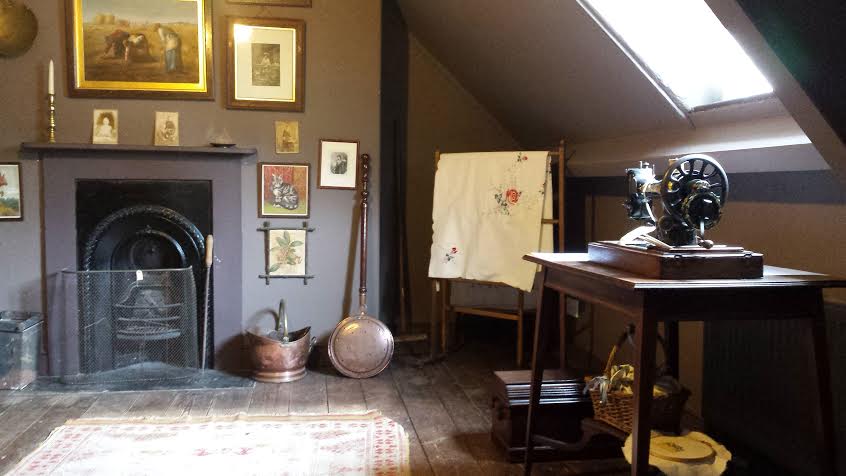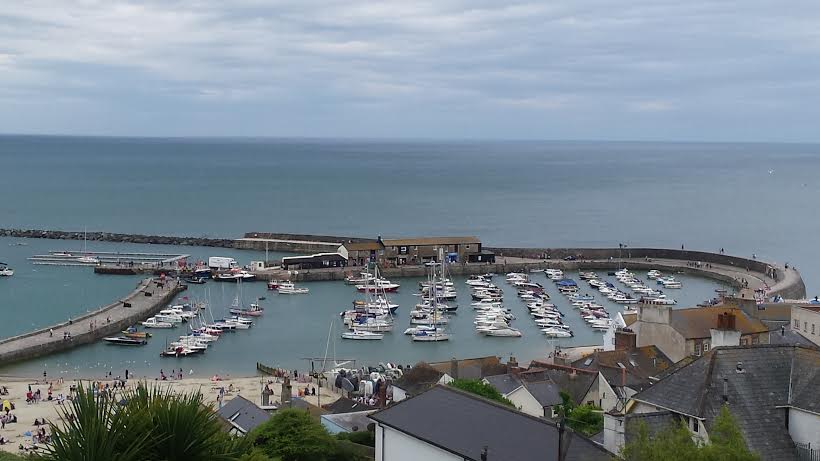Photo credit: Nate Kauffman
Describe your latest book.
Other People’s Love Affairs is a short story collection, assembled over the course of many years from what seemed at first to be unrelated stories, but that later began to coalesce around a fictional village, Glass, on England’s southwestern coast. I wanted the book to gaze intimately at the residents of this village, to explore their most private wishes and regrets in the manner of, say,
Dubliners or
Winesburg, Ohio. I have always been drawn to fiction that recognizes and takes seriously the intense but muted dramas of everyday life, and those characters who may not be able to envision themselves as the protagonists of their own stories. I wanted, I suppose, to restore something to them, that they might have their stories told without having to shout for attention.
What was your favorite book as a child?
I had a fondness for anything that involved talking animals:
The Wind in the Willows,
Watership Down,
Frog and Toad,
Ant and Bee. Of these,
Watership Down was probably my favorite, but it was
The Wind in the Willows that made the most lasting impact. There is a chapter in that book in which the Mole, having left his small underground hovel for the glorious, epicurean life along the banks of the river, catches a scent — from far off — of his home. I have never forgotten the way his heart slowly breaks for what is lost in that moment, or the way I could feel my own heart breaking, too. It was the first time, I think, I’d ever had that sort of response to a book. I might have been four, perhaps five.
(It occurs to me furthermore, writing this now, that the Mole is — after a fashion — an immigrant, a pilgrim, as my father was, and that the homesickness he experiences would already have been recognizable to me at that early age.)
When did you know you were a writer?
I’m not sure. Even now, if I haven’t been writing, I don’t always feel like a writer. But certainly I have always been drawn to stories. I dislike the notion that a writer is born — a suggestion that feels at once self-mythologizing and demeaning of the effort involved — but I suppose I was, as
Didion wrote, a “child... afflicted apparently at birth with some presentiment of loss.”
What do you care about more than most people around you?
Privacy, which I covet and guard sometimes to a degree (or in contexts) that others seem not to. For instance, I can recall, as a child, stepping out of a movie theater into the light and dreading the inevitable moment when I would be asked what I’d thought of the film. It felt almost unseemly to me, being made to describe what had been until then a private experience. I wanted it to myself a bit longer.
I think this is one of the reasons why I like books. They afford us a quiet, personal space.
Introduce one other author you think people should read, and suggest a good book with which to start.
Helen Humphreys is a British Canadian author who writes novels in exquisite prose, spare and unhurried. I’d recommend starting with her latest,
The Evening Chorus, a novel so beautiful, and so eloquent in its evocation of the restorative power of the natural world that it seems to vibrate with its own energy. Humphreys is in the midst of a wonderful and enviable career, but I can’t help thinking she ought to be even more widely read.
Besides your personal library, do you have any beloved collections?
No, because I fear a latent impulse for hoarding. But I do like the idea of collections. There is something appealing, even moving, to me about this human impulse to set things apart, to select them, to mark them as important somehow. It strikes me as a form of documentation not unlike the making of art, an artifact of oneself from which the self remains somehow aloof or protected.
I know of many writers who do collect things. I believe
Edward P. Jones, for instance, collects postage stamps, as well as those small figurines known as
netsuke. I like to think about him — one of our greatest living writers — taking a pleasure from these items, from the intricacy of their design, very much like the pleasure I have taken from his work.
Have you ever made a literary pilgrimage?
Oh yes, many. I like to visit writers’ homes, to see the spaces where they did their work. I have visited
Henry James’s house in Rye, and
Thomas Hardy’s house in Dorset (where the attic rooms are still arranged as his wife set them up after she’d retreated there to get away from him in his miserable old age!).

This photograph of a room with a fireplace was taken in the attic of Thomas Hardy's house in Dorchester. His wife moved permanently into this room when she could no longer stand to be around him!
But the best literary pilgrimage I have made was to the harbor at Lyme Regis and the famous cob where Louisa Musgrove has her dramatic and near-fatal fall in
Persuasion. I love Jane Austen, and particularly that late novel. Walking in Miss Musgrove’s foolish and fictional footsteps seemed somehow momentous to me.

This photograph of a harbor was taken in Lyme Regis, Dorset. The stone wall enclosing the harbor is called "The Cobb," and it features prominently in the Jane Austen novel, Persuasion. Louisa Musgrove, flirting foolishly with Captain Wentworth, falls from this wall. Wentworth's concern for her briefly disrupts his romance with Ann Elliott.
The sound of a book is fundamental to me, and of course the sound is encoded in the sentences; often they remain with me long after the rest has faded away. Some years after I’d read (and enjoyed!)
The Portrait of a Lady, for instance, it came up in a seminar I was taking, and I found that I could remember almost nothing at all of its plot, none but the principal characters, and yet could recite from memory these lines describing Isabelle Archer’s ill cousin, Ralph:
“Blighted and battered, but still responsive and still ironic, his face was like a lighted lantern patched with paper and unsteadily held.”
Describe a recurring dream or nightmare.
I had a book-related nightmare that recurred several times — I might have been five or six — inspired by the spooky cover of my sister’s
Nancy Drew mystery. It was
real terror, out of all proportion to the picture itself, so I’ve begun to think it must have had more to do with the onset of a basic existential awareness and dread such as must occur in all children, and for which that book jacket was only an occasion. (Bolstering this theory, my father tells me he had a similarly terrifying nightmare, at a similar age, that culminated — adorably — with a strange voice whispering, “The magic witch!”)
Name a guilty pleasure you partake in regularly.
Well, I don’t really think people ought to feel guilt about experiencing pleasure (provided, of course, that no one is harmed in the process). It is a rare enough thing in life, don’t you think?
Or is that not in the spirit of things? How’s this, then: I like to watch reruns of
Frasier while eating these marvelous grape-flavored popsicles (grape, I know, but trust me: they’re sublime). I make no apologies for any of this, but I’ve also never told anybody before, so make of that what you will.
What's the best advice you’ve ever received?
Early on in my writing life, when I was just beginning to work on the stories that would make up this book, I visited
Pam Houston, who was advising the first of my graduate theses. I asked her if she thought there was enough to the work, whether the material was sufficiently rich. I feared I’d written a story, I said, where the worst thing that might happen was someone having their feelings hurt. Her response was without hesitation, typically frank, aphoristic, and gave me precisely the permission I needed to go on and write the collection:
“Sometimes,” she said, “people can’t afford to have their feelings hurt.”
“And David,” she added, “I think you already know that.”
My Top Five Great Novellas:
None of these novels is over 175 pages (at least in the editions I own), and most are well under 150. (I’ve cheated a little by including Li, since her contribution was published with a story collection, but it’s just too good to leave out.) They represent precisely the sort of book one can’t really publish anymore, which is a shame, because it’s such a wonderful form.
The Gold-Rimmed Spectacles by Giorgio Bassani
A Month in the Country by J. L. Carr
"Kindness" by
Yiyun Li
So Long, See You Tomorrow by William Maxwell
Sula by Toni Morrison
÷ ÷ ÷
D. Wystan Owen holds an MFA from the Iowa Writers’ Workshop. His fiction and essays have appeared in
A Public Space, The American Scholar, Literary Hub, and
The Threepenny Review, where he is Deputy Editor. A dual citizen of the United States and the United Kingdom, he now lives in Northern California.
Other People's Love Affairs is his first book.